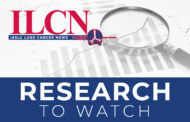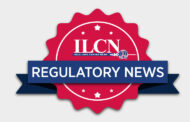Durvalumab and Tremelimumab Approved for Lung Cancer Treatment in Japan
The immunotherapies durvalumab and tremelimumab have been approved in Japan for the treatment of adult patients with unresectable, advanced, or recurrent non-small cell lung cancer (NSCLC) in combination with chemotherapy.
The approval of durvalumab and tremelimumab plus chemotherapy is based on results from the POSEIDON Phase III trial, which showed a limited course of five cycles of the anti-CTLA-4 antibody tremelimumab added to durvalumab plus four cycles of platinum-based chemotherapy significantly reduced the risk of death versus a range of chemotherapy options.1
Compared to CheckMate 9LA—a similar study of nivolumab plus ipilimumab combined with two cycles of chemotherapy versus chemotherapy alone—POSEIDON used a different regimen. POSEIDON had three arms: durvalumab plus chemotherapy; durvalumab and tremelimumab plus chemotherapy; and platinum doublet chemotherapy as a control arm.
Because the study had multiple arms, results demonstrate the contribution of tremelimumab.1, 2 And unlike in the CheckMate 9LA regimen, which has two cycles of ipilimumab, the POSEIDON regimen extends the CTLA4 blockade with tremelimumab for five cycles.
The safety profile for tremelimumab plus durvalumab and chemotherapy was consistent with the known profiles of each medicine, and no new safety signals were identified.
In Japan, lung cancer is the most commonly diagnosed cancer, with more than 138,000 patients diagnosed in 2020. The prognosis for patients with metastatic NSCLC in Japan is particularly poor, as less than 20% will live beyond three years after diagnosis without treatment.
Regulatory applications for durvalumab and tremelimumab are currently under review in the EU and several other countries based on the HIMALAYA, TOPAZ-1, and POSEIDON results.
FDA Approves FoundationOne Liquid CDx as Companion Diagnostic for Certain Group TKIs
The US Food and Drug Administration (FDA) approved FoundationOne Liquid CDx as a companion diagnostic to identify patients with NSCLC whose tumors have EGFR exon 19 deletions or exon 21 L858R substitutions and are appropriate for treatment with a group of current and future EGFR tyrosine kinase inhibitors (TKIs) approved by the FDA for this indication.
The current therapies for which FoundationOne Liquid CDx is a companion diagnostic under the group approvals are erlotinib, osimertinib, and gefitinib. Moving forward, FoundationOne Liquid CDx will automatically become a companion diagnostic for future TKIs within this group that are approved by the FDA for NSCLC.
FDA Approves Additional Indication for Pemetrexed Injection Plus Pembrolizumab/Chemo
The FDA has approved an additional indication for pemetrexed injection in combination with pembrolizumab and platinum chemotherapy for the initial treatment of patients with metastatic, non-squamous, NSCLC with no EGFR or ALK genomic tumor aberrations.
This approval represents the fifth indication for pemetrexed injection, a ready-to-use liquid with a unique J-code approved to treat locally advanced or metastatic non-squamous NSCLC in combination with cisplatin; locally advanced or metastatic non-squamous NSCLC whose disease has not progressed after four cycles of platinum-based first-line chemotherapy, as maintenance treatment; locally advanced or metastatic non-squamous NSCLC after prior chemotherapy as a single agent; and malignant pleural mesothelioma whose disease is unresectable or who are otherwise not candidates for curative surgery in combination with cisplatin.
References
- 1. Johnson ML, Cho BC, Luft A, et al. Durvalumab With or Without Tremelimumab in Combination With Chemotherapy as First-Line Therapy for Metastatic Non-Small-Cell Lung Cancer: The Phase III POSEIDON Study [published online ahead of print, 2022 Nov 3]. J Clin Oncol. 2022;JCO2200975. doi:10.1200/JCO.22.00975
- 2. Paz-Ares L, Ciuleanu TE, Cobo M, et al. First-line nivolumab plus ipilimumab combined with two cycles of chemotherapy in patients with non-small-cell lung cancer (CheckMate 9LA): an international, randomised, open-label, phase 3 trial [published correction appears in Lancet Oncol. 2021 Mar;22(3):e92]. Lancet Oncol. 2021;22(2):198-211. doi:10.1016/S1470-2045(20)30641-0




